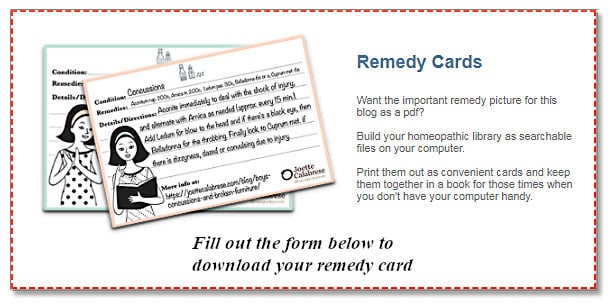If you’re a pufferfish, bloating is a good thing. If you’re a human … not so much.
My friends, this week’s featured homeopathic medicine — one that should have a place in every homeopathy kit — is quite specific for bloating.
But before we get to the remedy, let’s talk about exactly what I mean by “bloating.” It’s different than what some people think. It’s not to be confused with what is commonly called a “Buddha belly.” His face, chest, arms and legs are chubby as well, not just his belly. Let’s face it, when we look at those statues of Buddha, he’s obese!
Instead, bloating is not a general weight condition. Instead, it’s a feeling of fullness in one’s abdomen, the gastrointestinal tract, causing the stomach to protrude outward. It’s often accompanied by gas, burping, and belching.
Bloating occurs in some folks whenever and whatever they eat. It’s just par for the course. Some people bloat when they drink carbonated drinks. Still others bloat from eating cruciferous vegetables such as cabbage, cauliflower or broccoli. For some, just the simple act of drinking water can cause gastrointestinal bloating. And, of course, bloating can stem from food intolerances. But not always. It doesn't matter what the cause is. Gastrointestinal bloating is gastrointestinal bloating.
So with this sweeping medicine, we don’t necessarily need to know the exact cause. We can just consider employing Lycopodium clavatum 200.
Now, occasionally, one might decide to employ this medicine as an SOS to address an unusual acute occurrence of bloating. But more often, bloating is a chronic pattern — in which case, we would utilize it twice daily, until very much better.
Many sufferers believe they need to go for testing to identify the culprit. But again, at least to start on this journey, we don’t need to know the exact cause. Whether the bloating results from an intolerance to gluten, dairy, citrus or something else entirely, this medicine has been known to act.
Granted, testing can be helpful if one merely desires to abstain from the offending foods. But my focus is this: I hate to see people abstain from good, quality foods if we can correct the underlying condition.
Now, I’m not advocating that we get silly about this! I’m not encouraging the use of homeopathy so that someone can survive a steady diet of boxed cereals doused in commercial, low-fat milk, giant sub sandwiches, and beer packaged in aluminum cans.
But when good, healthy food causes bloating, then we consider turning to Lycopodium 200 to uproot the condition.
However, if the sufferer does not see a shift toward improvement within a week or so, it’s likely that Lycopodium is not the correct medicine for their condition. In that case, the Lycopodium should be discontinued, and more information should be gathered to determine a more specific medicine.
In a previous blog post, You Can’t Judge a Book by Its Cover, I also discussed utilizing Lycopodium 200 mixed together in the mouth with Plumbum metallicum 200 for constipation involving dry, hard, reluctant stools. And the same Banerji protocol has been shown to act for hernias (see Update: Hernias and Homeopathy).
So, it is no surprise that we should add this versatile medicine — Lycopodium clavatum — to our well-stocked homeopathy kit.
And here’s a bit of trivia about homeopathic Lycopodium that I shared in my Memo to Mighty Members #13 back in 2020. Did you know that the gross substance it’s made from — club moss — is one of the oldest plants on earth? I find it fascinating to think even the earliest man had access to a plant that could address bloating — if only they had understood homeopathic potentization!
Thank goodness for Dr. Samuel Hahnemann in the late 18th century. Because of his brilliance, the next time you bring a Broccoli-Cauliflower Casserole to a potluck, you might have the opportunity to pass on the good news of homeopathy!
Warmly,
P.S. If your family deals with gut issues regularly, perhaps it’s time to consider my seminal course, Good Gut, Bad Gut: A Homeopathic Strategy to Uproot Seemingly Unrelated Illness in Body and Mind. Even if your meals are well-prepared — your food sources are top-notch, and you make everything from scratch — family members may still have problems related to the gut, such as anxiety, depression, bloating, brain fog and weight gain. That’s what my course addresses. Learn more by clicking here.
And remember — all of my Mighties (Joette’s Mighty Members) qualify for a 10% discount on course purchases. If you need assistance getting your discount, email [email protected] for more information.
P.P.S. We’ve added new social media venues to our outreach, such as Gab, Gettr, Truth Social and Rumble. To stay on top of all the places my information can be found, check out my listings on Linktree.








As always, thanks so much!
Hi Joette,what about water retention onstead of gases causing the enlarging of abdomen? s there something universal (other than Aconitum for schock) that could relieve the or even better the condition?
What is the protocol for the belly bloating? I.E. When to take the Lycopodium, how many per day, for chronic bloating? I’ve struggled with this for so long, and look forward to getting some relief!
It’s on the remedy card that you can download.
Thank you so much, Joette. I always attributed my bloating to “just getting old.” I’m only 51 and hopefully have many more years to enjoy salads and broccoli cheese melts. Going to try this!
Will the Lycopodium help bloating from SIBO (small intestinal bacterial overgrowth)? The bloating from the gases these bacteria create make it hard for me to eat, my stomach feels so bloated.
I urge you to consider reading up on the remedy in a materia medica before making a decision. These medicines have many applications but to know for certain, its best to take it to the next level of understanding. If you have my materia medica, check there. If you don’t own one there are materia medicas available to read online.
Dr. JAmes Tyler Kent, Dr. Boericke, and others.
I want to add another point that may help you. When I offer information on a homeopathic medicine and declare that it’s specific for bloating you might notice that I don’t point out the cuase. ie bloating from food intolerances, bloating from antibiotic use, bloating from bacteria overgrowth, bloating from yeast overgrowth, etc.
The cause is usually irrelevant.
But of course, you already knew that becuase it was stated in the article.
Thank you for responding so quickly. I didn’t know if there was another remedy that specifically targeted bacterial overgrowth. I’m new to homeopathy. I will do a little more research but I may just try the Lycopodium to see if it works for the bloating. Thanks!
Read the article carefully. I try to give as much information as possible in a short presentation.
I urge you to consider joining one of my online stuy groups called Gateway to Homeopathy by going to JoettesLearningCenter.com
Your learning curve will skyrocket.
I am finally in a position to try this remedy, Lycopodium 200c. Gas and bloating have plagued me for years and I’ve tried other homeopathic treatments which worked and then stopped. Lycopodium has been magical for me! Thank you, Joette for this and all your wonderful information!!!
Hi Joette, if using this for a temper tantrum as stated in your materia medica, would you start with a 30C or 200C? Thank you!
I generally use 200 potency of our medicines for conditions of hte mind. Other homeopaths do it differently but this is the method I use.
Hi Joette,
I read up on the remedy and really thought I fit the BP of lycopodium 200c mixed with Arsenicum Album 3c but I used 6c. I used it for a week feeling like it had been helping even had a couple afternoon bowel movements that took a very long time to get out. Anyways, by like day 7 my belly got really bloated and hard. It’s hard and I think it has trapped gas and the bloating goes down by the morning but it’s definitely still there and I feel it on my jeans. It’s very uncomfortable. It’s been like this for 2 weeks and I don’t eat much grains and try to eat healthy meat, fruits and veggies. Did I make myself worse??
Are you worse?
I tried Lycopodium 200 as I found myself in the remedy picture quite a bit. I have a history of chronic bloating but now it just got worse, like some of the worst bloating I ever had. Is this an aggravation? I follow the classic homeopathy protocol and only took one dose. Not sure if I should take more..
It feels very uncomfortable and definitely the worst bloating I had in a while, and I cannot think of anything (gluten, dairy) that would have caused it
WHen the protocol is followed, which includes the frequency, and there is increased suffering, it can be concluded that its an incorrect medicine. If the medicine is used only once, it can be concluded that it is either an incorrect medicine or an aggravation. Endeavoring to straddle two methods makes it difficult to read the response.